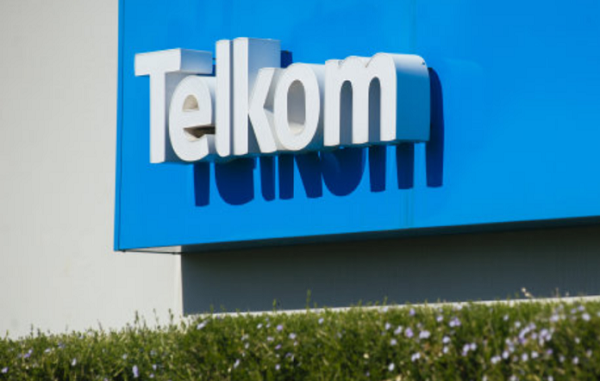

Founder: Turnaround Talk
Addressing the nation in February, President Cyril Ramaphosa had the following to say about economic growth: South Africa is in dire need for economic growth. In the past this was predominantly driven by State Owned Entities (SOEs). However, the time has come for greater participation from the private sector when it comes to achieving future economic growth.
Ramaphosa made it clear that there will be no transfer of power, rather, there will be a greater responsibility on both SOEs and the private sector to play an increased role in driving economic growth. However, Ramaphosa was clear that the majority of the responsibility will still rest on the shoulders of SOEs.
Economic growth will require a functional entity that is able to provide the product/products that they are responsible for. Eskom is currently under pressure to achieve this and Transnet is teetering between financial distress and a company that is ambling along with its duties. Government has already said that SAA needs to pull its socks up and that if it wants any financial assistance in the future, it needs to turn towards its strategic equity partner Takatso. The South African Post Office is in the process of rolling out its strategic turnaround plan which it has labelled The Post Office of Tomorrow. The Post Office has asked for patience in the implementation of this plan.
So, what do we have to work with? Two SOEs (Eskom and Transnet) who are too important to fail but are currently not in any position to deliver the product or service that they provide with any confidence. We have a national airline that Government has all but washed its hands over, and a Postal Service that is asking the public to play a significant waiting game. Out of these candidates, Eskom and Transnet are the most likely candidates to drive future economic growth, but private sector involvement will come from independent power producers (in Eskom’s case), and private rail users (in Transnet’s case). Telkom is a SOE that can play a massive role in driving future economic growth and Government is looking at potential suitors to offer assistance with this.
Subheadings and the final section were written by Turnaround Talk.
Player three enters the game
The News24 article points out that with three companies publicly expressing an interest in Telkom, analysts expect even more will enter the ring.
On 12 August, Bloomberg reported that government received an unsolicited bid for its 40.5% stake in Telkom from the investment firm Toto Consortium. The bid is valued at around R7 billion. Toto is part of a consortium that controls a 24% stake in Richards Bay Minerals, and was previously unsuccessful in its bid to buy SAA.
The News24 article adds that this followed data-only mobile operator Rain’s announcement of a proposal to merge with Telkom on Thursday. But the takeover regulation panel demanded that it withdraw its announcement after it didn’t get the necessary approvals. Rain is currently obtaining legal advice.
Less than a month ago, MTN approached Telkom with a buyout bid. The companies continue to say they were in the early stage of negotiations.
“We could very easily see more [offers]. It’s open season now,” FNB Wealth and Investments’ Wayne McCurrie told News24. “With all the moves on Telkom, there’s now a clear sense that the company is for the taking.” He expects whoever makes the winning bid would either want to buy the entire government stake or the group as a whole – ruling out Rain’s merger plan.

Photo By: Canva
Mergence Investment Managers’ head of equity, Peter Takaendesa, also believes that Toto’s bid is not the last. He expects even more offers.
“There are many opportunistic expressions of interest for the whole or some parts of Telkom at the moment, but it will all come down to what makes the most sense for key Telkom stakeholders, including the government,” he said.
A R7 billion undervaluation
The article points out that Takaendesa believes that offering R7 billion for the government’s 40.5% stake undervalues Telkom, based on the current market price of its shares. It is also at odds with what Mergence believes Telkom is worth based on its sum-of-the-parts.
“Telkom’s own valuation of the group a few years ago, as shared in the 2020 results presentation, valued the group at over R50 billion, which is much higher than the R17 billion valuation implied by this offer,” he said.
The article adds that McCurrie reckons the R7 billion offer is just a starting point for negotiations.
“You never go in with your final price. You start with your lowest price and start negotiating if you are serious.”
AJ Snyman, an Investment Analyst with Peregrine Capital, reckons that when MTN made its move, it emboldened other companies to believe that there was a possibility that the Competition Commission and Independent Communications Authority of South Africa (Icasa) might just approve a takeover of Telkom. Before that, even though many possible suitors realised how valuable Telkom’s fibre business, Openserve, was, they didn’t bother making offers because they never saw it getting past the competition authorities.
“But when MTN moved, you’ve got to assume that it would be smart enough and that it did its homework before announcing something like this,” he said.
The article points out that Snyman believes that the telecoms giant would have asked its chairperson, former Deputy Finance Minister Mcebisi Jonas, for advice on whether something like this would fly with the government, which owns 40.5% of Telkom.
Even though Communications Minister Khumbudzo Ntshavheni told Bloomberg that there were no plans to sell the government’s stake in Telkom at the moment, Snyman said that the Telkom’s weak financial performance in the first half of 2022 created more incentive for the government to sell and monetise its stake.
“I think the likelihood of a deal happening has increased significantly in the last few weeks. You never know in what shape or form this deal might actually end up,” he said.

Photo By: Canva
What makes Telkom so attractive?
Of all the SOEs, Telkom has arguably performed the best since the dawn of democracy in 1994 and has made the smartest moves of all of the candidates discussed above.
Telkom’s transformation into an internet service provider (ISP) was an astute move by a company at a time when landlines were becoming archaic and necessary for businesses more than individuals. Telkom firmly believed that the future of its profitability was becoming an ISP; with Governments statement of intent of offering Government sponsored WIFI to households, Telkom has a viable growth model, but needs financial assistance and skills to successfully achieve a mass roll out.
How will embracing technology enable economic growth? The Covid-19 Pandemic has accelerated the growth of the Fourth Industrial Revolution (4IR). A key component of the 4IR is the digital/Gig Economy. Becoming a significant role player in the Gig Economy will position South Africa as a continental leader in terms of online businesses and a blueprint that other African countries can use to achieve similar growth.
The World Economic Forum believes that by 2050, Africa will have an economy that rivals that of the US and China. A significant portion of this will not only be made up of SMEs, but SMEs that are digitised and offer digital product and services. Connecting Africa to global customers will be the future of economic growth.



